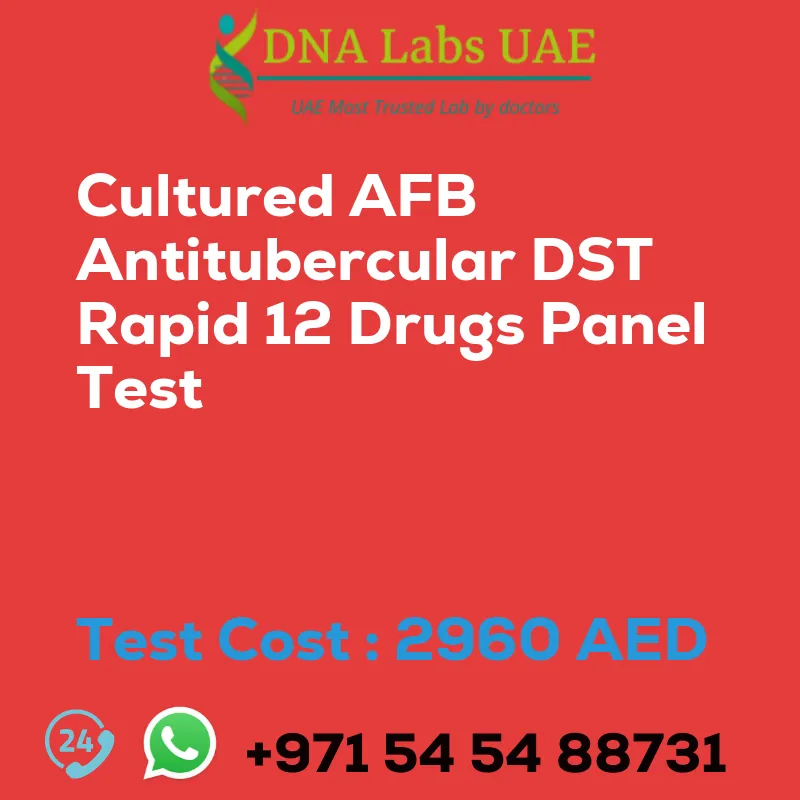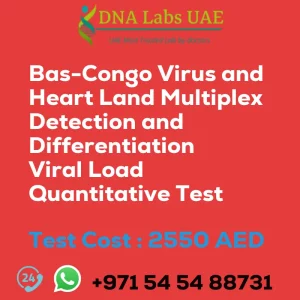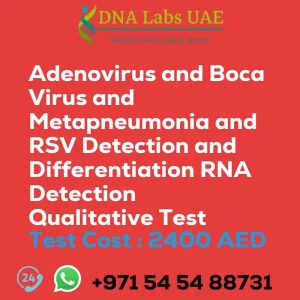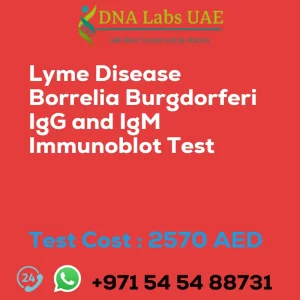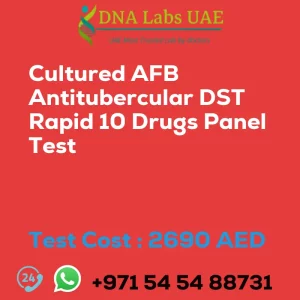CULTURED AFB ANTITUBERCULAR DST RAPID 12 DRUGS PANEL Test
Test Name: CULTURED AFB ANTITUBERCULAR DST RAPID 12 DRUGS PANEL Test
Components:
- Streptomycin
- Isoniazid
- Rifampicin
- Ethambutol
- Pyrazinamide
- Clofazimine
- Ethionamide
- Capreomycin
- Kanamycin
- Amikacin
- Ofloxacin
- PAS
Price: 2960.0 AED
Sample Condition: Submit pure growth of Mycobacterium tuberculosis complex on appropriate media in sterile screw capped container in a sealed plastic bag. Ship refrigerated OR when used with other AFB culture or Mycobacteria identification tests, the pure growth obtained in the Laboratory from specimens already submitted will be processed for Antitubercular Sensitivity.
Report Delivery: Sample Daily by 3.30 pm; Report 21 days
Method: Automated Fluorescent
Test type: Tuberculosis
Doctor: Physician
Test Department:
Pre Test Information: No special preparation required
Test Details
The CULTURED AFB ANTITUBERCULAR DST RAPID 12 DRUGS PANEL test is a laboratory test used to determine the drug susceptibility of the Mycobacterium tuberculosis complex (MTBC) bacteria. This test is performed on a culture of AFB (acid-fast bacilli) obtained from a patient’s sputum or other clinical samples. The test panel includes 12 different drugs commonly used to treat tuberculosis, including isoniazid, rifampin, ethambutol, pyrazinamide, streptomycin, kanamycin, amikacin, capreomycin, ofloxacin, moxifloxacin, levofloxacin, and ethionamide. These drugs belong to different classes and have different mechanisms of action against the MTBC bacteria.
The test is performed by exposing the AFB culture to different concentrations of each drug and observing the growth or inhibition of the bacteria. The results are interpreted as susceptible, resistant, or intermediate for each drug, indicating the effectiveness of the drug in treating the specific strain of tuberculosis. This test is important in guiding the selection of appropriate antibiotic therapy for tuberculosis patients.
Drug-resistant strains of MTBC bacteria are a growing concern, and this test helps in identifying the most effective drugs to treat the infection.
| Test Name | CULTURED AFB ANTITUBERCULAR DST RAPID 12 DRUGS PANEL Test |
|---|---|
| Components | *Streptomycin*Isoniazid*Rifampicin *Ethambutol*Pyrazinamide *Clofazimine *Ethionamide*Capreomycin*Kanamycin *Amikacin*Ofloxacin*PAS |
| Price | 2960.0 AED |
| Sample Condition | Submit pure growth ofMycobacterium tuberculosis complexon appropriate media in sterile screw capped container in a sealed plastic bag. Ship refrigerated ORwhen used with other AFB culture or Mycobacteria identification tests, the pure growth obtained in the Laboratory from specimens already submittedwill be processed for Antitubercular Sensitivity. |
| Report Delivery | Sample Daily by 3.30 pm; Report 21 days |
| Method | Automated Fluorescent |
| Test type | Tuberculosis |
| Doctor | Physician |
| Test Department: | |
| Pre Test Information | No special preparation required |
| Test Details |
The CULTURED AFB ANTITUBERCULAR DST RAPID 12 DRUGS PANEL test is a laboratory test used to determine the drug susceptibility of the Mycobacterium tuberculosis complex (MTBC) bacteria. This test is performed on a culture of AFB (acid-fast bacilli) obtained from a patient’s sputum or other clinical samples. The test panel includes 12 different drugs commonly used to treat tuberculosis, including isoniazid, rifampin, ethambutol, pyrazinamide, streptomycin, kanamycin, amikacin, capreomycin, ofloxacin, moxifloxacin, levofloxacin, and ethionamide. These drugs belong to different classes and have different mechanisms of action against the MTBC bacteria. The test is performed by exposing the AFB culture to different concentrations of each drug and observing the growth or inhibition of the bacteria. The results are interpreted as susceptible, resistant, or intermediate for each drug, indicating the effectiveness of the drug in treating the specific strain of tuberculosis. This test is important in guiding the selection of appropriate antibiotic therapy for tuberculosis patients. Drug-resistant strains of MTBC bacteria are a growing concern, and this test helps in identifying the most effective drugs to treat the infection. |

